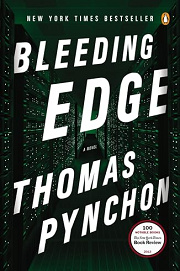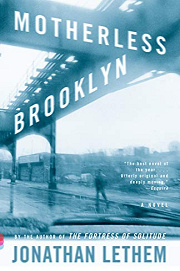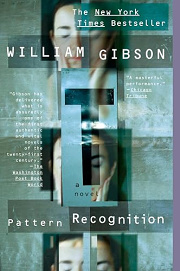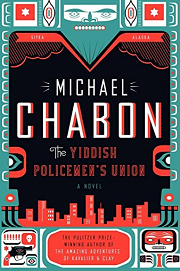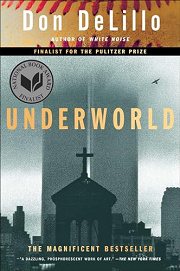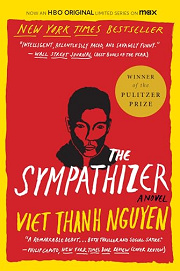Share your thoughts in a quick Shelf Talk!
Bleeding Edge by Thomas Pynchon
Dot-com dreams curdle into paranoia as a savvy investigator chases money, code, and ghosts through pre-9/11 New York. Wired with linguistic sparkle and conspiratorial grit, Bleeding Edge turns the twilight of an era into a noir for the digital age.
Have you read this book? Share what you liked (or didn’t), and we’ll use your answers to recommend your next favorite read!
Love Bleeding Edge but not sure what to read next?
These picks are popular with readers who enjoyed this book. Complete a quick Shelf Talk to get recommendations made just for you! Warning: possible spoilers for Bleeding Edge below.
In Bleeding Edge, did you enjoy ...
... a sardonic NYC detective unraveling a tech-tinged conspiracy?
Motherless Brooklyn by Jonathan Lethem
If Maxine Tarnow’s wisecracking sleuthing pulled you in—trailing Reg Despard’s footage, poking into Gabriel Ice’s books, and nosing around DeepArcher—then you’ll love the way Lionel Essrog, a PI with Tourette’s, bulldozes through a Brooklyn mystery with relentless, oddball tenacity. Like Maxine’s case, the clues here twist through shady business dealings and urban subcultures, and the voice is sharp, funny, and streetwise enough to make every revelation pop.
... post‑9/11 tech paranoia, brand sorcery, and an investigator chasing digital ghosts?
Pattern Recognition by William Gibson
You followed Maxine through the dot‑com crash’s aftershocks, from DeepArcher’s haunted corridors to Gabriel Ice’s opaque shell companies. In Pattern Recognition, Cayce Pollard hunts an anonymous film spreading online, crossing borders and boardrooms as corporate interests and internet folklore blur. It nails that same eerie vibe of code as culture and capital—like Maxine tracking data trails that feel almost supernatural—and delivers the same sleek, brainy thrill of decoding the world we live in.
... noir sleuthing laced with Jewish humor that snowballs into a grand conspiracy?
The Yiddish Policemen's Union by Michael Chabon
If you enjoyed how Maxine’s quips cut through the darkness—bantering with March Kelleher one page, staring down spooks like Nicholas Windust the next—this delivers that bittersweet mix. Detective Meyer Landsman works a murder that spirals into political and religious machinations, and the jokes stay dark as the stakes rise. Like Bleeding Edge, it’s a wise, Jewish‑inflected noir where the punchlines land even as the conspiracy tightens.
... sprawling, intersecting conspiracies about American power, media, and waste?
Underworld by Don DeLillo
Maxine’s trail through Silicon Alley, black‑budget contractors, and post‑9/11 unease hinted at something bigger humming beneath daily life. Underworld widens that hum into an orchestral roar—Cold War anxieties, corporate secrecy, and cultural detritus layered into a mosaic. If the way Bleeding Edge interwove Maxine’s family life with hidden networks hooked you, DeLillo’s multi‑threaded tapestry will scratch that same itch, trading source code for baseballs, bombs, and buried histories.
... deep‑state manipulation and morally murky espionage?
The Sympathizer by Viet Thanh Nguyen
Maxine’s dance with Nicholas Windust—where government work, private contracts, and personal loyalties blur—echoes through this razor‑edged spy novel. The nameless narrator navigates intelligence games that pit ideology against friendship, much like Maxine’s investigation pits civic conscience against the interests behind Gabriel Ice. If you liked the way Bleeding Edge exposes how power moves offstage, this delivers that intrigue with devastating clarity and bite.
Unlock your personalized book recommendations! Just take a quick Shelf Talk for Bleeding Edge by Thomas Pynchon. It’s only a few questions and takes less than a minute.
